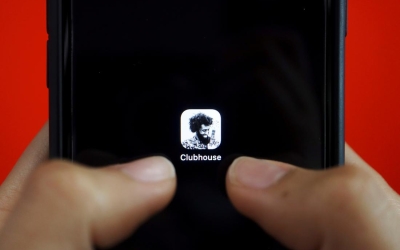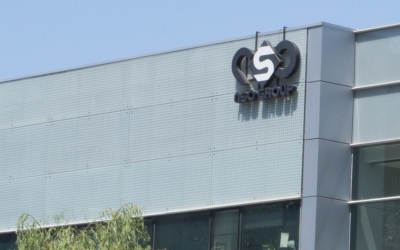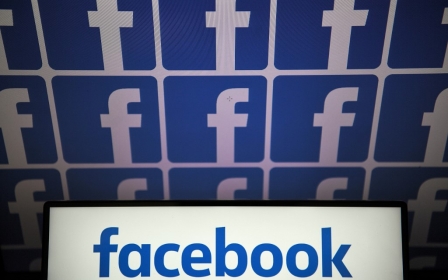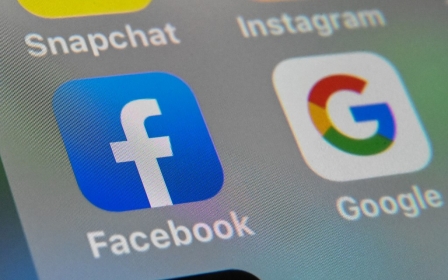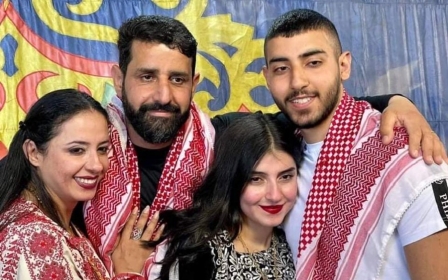Facebook reassurances on ‘Zionist’ hate speech policy met with skepticism
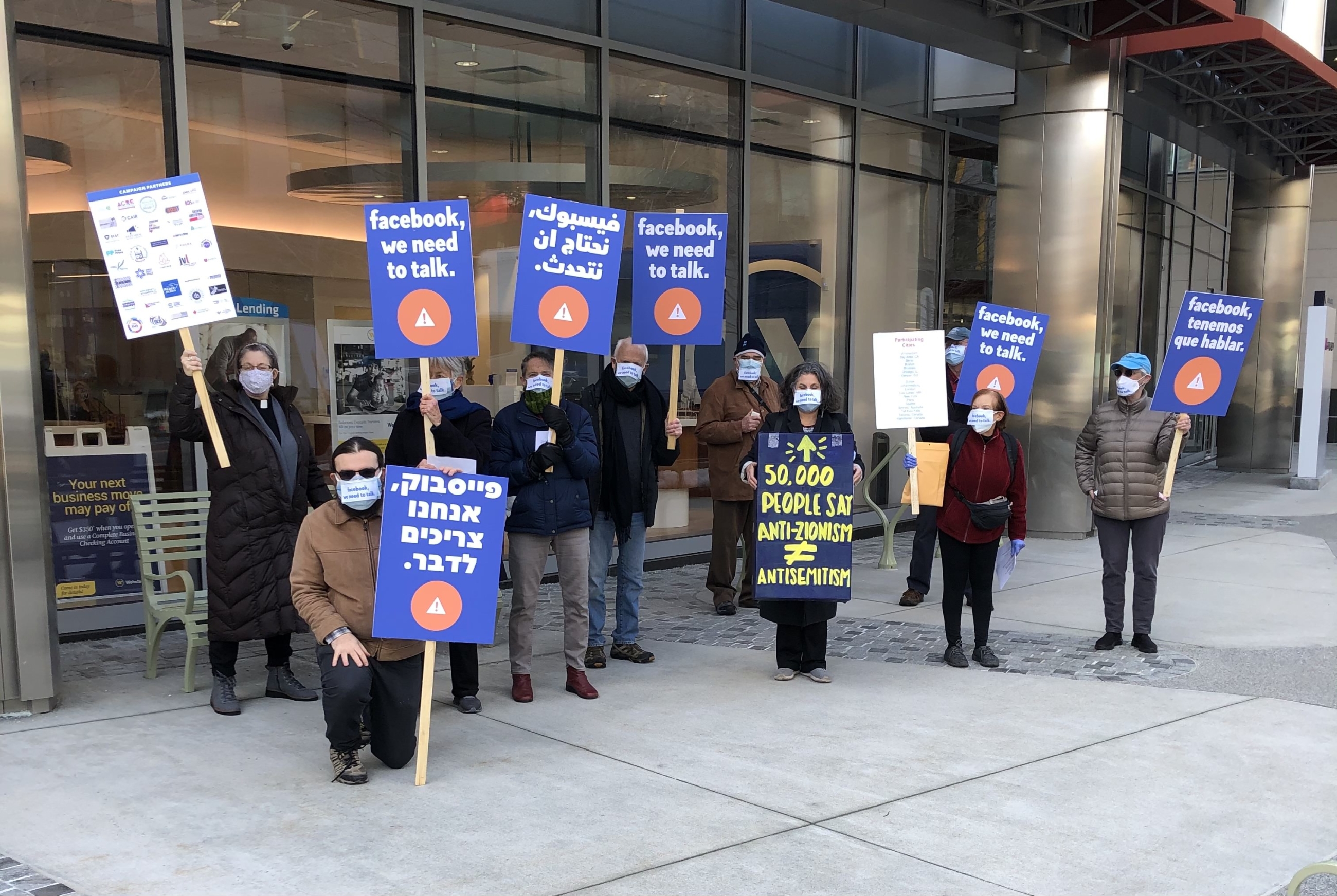
A Facebook announcement on Tuesday responding to criticism about a controversial rethink of how the platform should interpret the term "Zionist" has been met with skepticism by Arab and Jewish rights groups.
Speaking at the Palestine Digital Activism Forum, Facebook officials said they had no plans to make "Zionist" part of their so-called protected characteristics in their hate speech policy. The platform does not allow content attacking tenets of a person’s identity, including race, gender, sexual identity, ethnicity and religion.
New MEE newsletter: Jerusalem Dispatch
Sign up to get the latest insights and analysis on Israel-Palestine, alongside Turkey Unpacked and other MEE newsletters
But Facebook also removes content adjudged to be attacking such characteristics by proxy, and the officials said that there had been “no decision” yet on how they would moderate content including the term “Zionist” when seen as a “proxy for Jew”, doing little to allay a major concern of activists that a policy change could stifle free speech and legitimate criticism of Israel.
The social media site has long been criticised for deleting accounts of Palestinian activists in coordination with Israeli authorities.
'Facebook, we need to talk'
In January, tech news site The Verge reported on a leaked email showing that Facebook was consulting various organisations on whether or not the word "Zionist" was being used online “as a proxy for attacking Jewish or Israeli people”, and the term’s place among the company’s hate speech policies.
The news of Facebook’s discussions was met with concern by activists.
Arab and Jewish rights groups launched the “Facebook, we need to talk” campaign, arguing that considering the word "Zionist" a proxy for "Jew" or "Jewish" would be “the wrong solution” to the “real and important problem” of antisemitism. It would only serve to block people sharing their opinion and experiences with each other, and “prohibit Palestinians from sharing their daily experiences and histories with the world”, they argued.
More than 50 organisations and 52,000 people supported the petition. Tuesday’s comments marked the first time platform representatives have spoken publicly about the issue.
Miranda Sissons, Facebook’s director of human rights product policy and engagement, said that she was “very aware of the deeply sensitive concerns on this topic”, but that “the fear that we are suddenly going to wave a magic wand and change everything about our hate speech policy, or about our definition of Zionism, is not accurate".
“Just because there is a policy process does not mean that there is necessarily going to be a policy change,” she added, saying that Facebook was just looking at whether in “certain limited contexts” the term may be a “proxy for Jew”, particularly among white supremacists and separatists.
But Arab and Jewish rights groups remain unconvinced by the company’s comments.
'Moderating fluid and highly context-dependent terms such as "Zionism" will be impossible to get right at scale'
- Marwa Fatafta, Access Now
“Facebook’s reassurances… are not, actually, all that comforting,” Dani Noble, campaign organiser for Jewish Voice for Peace (JVP), a progressive Jewish grassroots organisation that was part of the "We need to talk" campaign, told MEE.
While JVP was “thrilled” that Facebook appeared to be taking seriously the call to not “set the dangerous precedent of shielding governments - including the Israeli government - from accountability”, she added, she shares concerns that Facebook’s policy could result in the muzzling of political speech.
Nadim Nashif, executive director of 7amleh: The Arab Center for Social Media Advancement, an NGO based in Haifa (and the organiser of the forum), told MEE that Tuesday’s comments were “confusing” and offered “nothing substantial”, adding that Facebook’s policy on the matter was “still, honestly, very unclear”.
The idea that Facebook would add "Zionist" to its protected categories had never really been tabled, he added - it was always about "Zionism" being a proxy for antisemitism.
“I guess they were trying to be diplomatic,” he said.
Marwa Fatafta, Middle East and North Africa policy manager at Access Now, a non-profit defending digital rights, told MEE: “Whether they intend to add ‘Zionists’ as a protected group under their hate speech policy or to moderate the word itself when used as a proxy, it does not make the proposed policy any less problematic.
“Moderating fluid and highly context-dependent terms such as ‘Zionism’ will be impossible to get right at scale, especially when automated decision-making tools are used,” she added.
An 'invaluable' definition
The furore around moderation of "Zionist" taps into worries about the Israeli government lobbying Facebook to adopt the International Holocaust Remembrace Alliance (IHRA) definition of anti-semitism.
The IHRA definition contains 11 "contemporary examples of antisemitism", including denying the Holocaust and promoting conspiracy theories about the Jewish people.
But other more controversial examples include "applying double standards" to Israel and describing the creation of Israel as a "racist endeavour".
The definition has been condemned by prominent Jewish groups and hundreds of leading Jewish and Israeli scholars, who argue it serves to "shield Israel from being held accountable to universal standards of human rights and international law".
Sheryl Sandberg, Facebook’s chief operating officer, sent a letter last year to prominent right-wing Israeli-American Adam Milstein saying that the IHRA definition had been “invaluable” in informing the company’s approach to antisemitism and that “in some respects” the company’s community standards “go even further than the IHRA definition”, as reported by 972 Magazine last week.
'Voice of the government'
Facebook, and other big tech platforms, have been repeatedly criticised for heavy-handed moderation of content posted by users in the Middle East.
Last September, the platform was accused of repeatedly stifling Palestinian voices under the pretext of preventing hate speech.
In May 2020, MEE reported that more than 50 Palestinian journalists had their accounts deleted for “not following [Facebook’s] community standards”.
Facebook has for years been deactivating the accounts of Palestinians in coordination with the Israeli government and security agencies, according to a 2018 7amleh report, under the pretext of preventing Palestinian "incitement" on its platform.
7amleh's study accused the platform of “increasingly demonstrating its commitment towards the Israeli government to silence content pertaining to Palestinian solidarity or criticism of Israel”.
Similar concerns have been raised about the outsized influence of Israel in Facebook's decision-making process on the "Zionism" issue.
Jordana Cutler, Facebook’s public policy director for Israel and the Jewish diaspora, previously held various positions in the Israeli government, including as an adviser to Prime Minister Benjamin Netanyahu.
Cutler told The Jerusalem Post last November that she was a "voice of the [Israeli] government, for their concerns" inside Facebook, and that her job gave her the chance to “really influence the way that we look at policy”, particularly relating to antisemitism.
JVP's Noble told MEE: “It is unacceptable that Facebook would have any policy directors on staff who publicly state that, while working for Facebook, they are also advocating on behalf of a specific government – as Ms Cutler has done.
“It seems pretty clear that, as long as an advocate for the Israeli government is a key decision-maker at Facebook, any attempts to hold the Israeli government accountable for violating human rights will be censored and banned.”
Facebook didn’t respond to questions about how much of a role Cutler had in the "Zionist" consultations, nor about who else was leading the process or who would take the final decision.
A Facebook company spokesperson told MEE: "We are not looking into this issue at the behest of the Israeli government, nor have we met with them or officials from any other governments about this issue.
"How we address the term 'Zionist' under our policies does not rest on input from the Israeli government or other government officials."
Contradictions
Facebook didn’t answer an emailed question about which organisations or individuals had been consulted as part of this process.
7amleh confirmed to MEE that it was one of the groups. So did Access Now.
'How we address the term "Zionist" under our policies does not rest on input from the Israeli government or other government officials'
- Facebook spokesperson
A JVP representative told MEE that they weren’t initially consulted on the issue and were unaware of any other progressive Jewish groups or any US-based Palestinian groups being invited to discussions with Facebook. JVP subsequently requested a meeting with Facebook, which was granted.
In an email seen by MEE that Facebook sent to campaigners, an official wrote that the company was listening to opinions of “stakeholders across the global and political spectrum”.
It added that Facebook’s goal is to “give people voice”, and that aim extends “certainly to Palestinians”.
The email also said that the policy development process “will continue through the spring”.
Facebook didn’t reply to a question about when a final decision would be made, or whether there would be any announcements at the end of the process.
They repeated to MEE that the company allows the term "Zionist" "in political discourse, but remove[s] it when it's used as a proxy for Jews or Israelis in a dehumanising or violent way", emphasising that the consultation process did not necessitate a policy change.
Activists say the decision-making process remains murky.
Sijal Nasralla, campaign director at MPower Change, a US-based Muslim grassroots organisation and partner on the "We need to talk" campaign, told MEE: “We’ve only received crumbs of information about how Facebook is planning on making their final decision... Transparency is not their strong suit.”
Until a final decision is issued, the company’s assurances appear to be doing little to assuage activists’ concerns.
“Facebook purports to be a liberal platform for the exchange of ideas and for building relationships, but this potential policy change clearly contradicts that,” Sumaya Awad, director of strategy and communications at the Adalah Justice Project, a US-based Palestinian advocacy organisation and partner on the “We need to talk” campaign, told MEE.
“How can Palestinians contribute to the so-called 'marketplace of ideas' if they can’t discuss the political movement causing their displacement and their daily oppression?"
Middle East Eye delivers independent and unrivalled coverage and analysis of the Middle East, North Africa and beyond. To learn more about republishing this content and the associated fees, please fill out this form. More about MEE can be found here.


